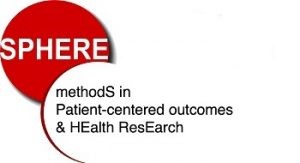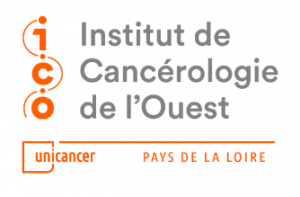What if managers’ emotional skills could help improve employees’ return to work after cancer? Marie Viseux, a doctoral student in the SIRIC ILIAD’s ReWork programme, has attempted to answer this question in a scientific article published in July 2022.
More than one million people of working age will be diagnosed with cancer in Europe by 2020. Thanks to therapeutic developments and prevention, it is possible to consider a return to work after treatment. However, employees who return to work may experience a mix of pleasant and unpleasant emotions at this time. For example, they may be proud and/or relieved to be back at work, but at the same time have concerns about their ability to work again.
Managers: key players in the company’s return to work
Managers might feel ambivalent about their role as a support function as well, for example, pride in supporting the return to work, but fear that they will not be able to cope, or that they will be particularly affected by the situation.
« Managers may feel more or less comfortable with the emotions expressed by employees, as well as having to deal with their owns when supporting the return to work after cancer.» Marie Viseux, PhD student
As the heart of the organisation and the working environment, the manager is a key player in the return to work process. Support from their managers, respectful communication and a positive environment are important for employees when they return to work. To best support employees, emotional competences training for managers who wish to do so, will enable them to have more knowledge and develop skills related to emotions. The aim of such an action is preventive: to prevent both the mental health of managers and employees returning to work and to promote a successful and sustainable return to work for employees.
A collective reflection at European level…
Marie Viseux, a PhD student in health and work psychology, looked at the relevance of emotional skills for managers in the context of returning to work after cancer.
«Recent work on emotional competences agrees on five competences: identification, expression, understanding, regulation and use of emotions on two levels: intrapersonal and interpersonal » Marianne Bourdon, psycho-oncology researcher
This reflection was the subject of a scientific article last July in the journal Frontiers in psychology. It requested multidisciplinary expertise from European researchers:
- Marie Viseux, PhD student in health and work psychology, 22UMR INSERM 1246 SPHERE, Nantes University et University of Tours
- Sietske J. Tamminga, researcher in public and occupational health, Amsterdam UMC
- Michiel Greidanus, occupational health researcher, Amsterdam UMC
- Bertrand Porro, health psychology researcher, Ester Team, IRSET, Université d’Angers
- Yves Roquelaure, Head of Department – Occupational pathologies and occupational health at the CHU of Angers, and head of the ESTER team IRSET
- Marianne Bourdon, researcher in psycho-oncology at the Institut de Cancérologie de l’Ouest, Nantes, Angers ; UMR INSERM 1246 SPHERE, Nantes Université et University of Tours
« We complete each other among professionals from different backgrounds, disciplines and cultures. This teamwork allows us to have a variety of points of view and gives rise to a very rich reflection. » Marianne Bourdon & Marie Viseux
… to support employees’ return to work after cancer
What is interesting about emotional competences is the positive effect that their development can have, both in professional and personal life. Research shows that the development of emotional competences increases the quality of social relationships and managerial skills, including conflict management and teamwork.
« For several years, the Institut de Cancérologie de l’Ouest has been offering training courses on emotional skills to ICO employees. We wanted to put this experience to good use in the field of return to work after cancer. » Marianne Bourdon
Applied to the management of employees affected by cancer, training could help managers who wish to do so, to increase their confidence in this situation and to improve communication with the employee, knowing that the relationship also relies, of course, on the emotional skills of the employee.
« This article is a first step. Eventually, our research will be used to create a tailor-made training course, to offer managers who wish to support their employees during the return to work after cancer ». Marie Viseux




Lire la publication scientifique : https://www.ncbi.nlm.nih.gov/pmc/articles/PMC9319043/

